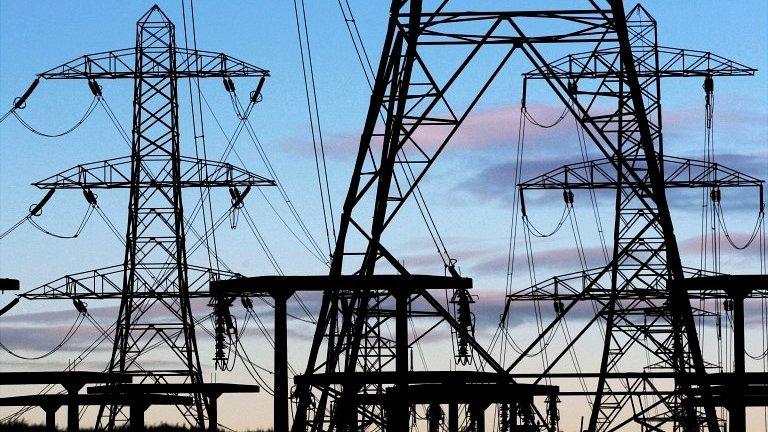Final pylon toppled from Dorset beauty spot
- Published
In total 22 pylons and overhead cables have been removed near Winterbourne Abbas
The last electricity pylon in an area of outstanding natural beauty (AONB) has been pulled down.
Work to remove 22 pylons and 8.8km (5.5 miles) of overhead cable started near Winterbourne Abbas, Dorset, in September.
The overhead power lines, put up in the 1960s, have been replaced with buried cables to restore uninterrupted views of the landscape.
The final pylon, just north of the A35, was felled on Friday morning.
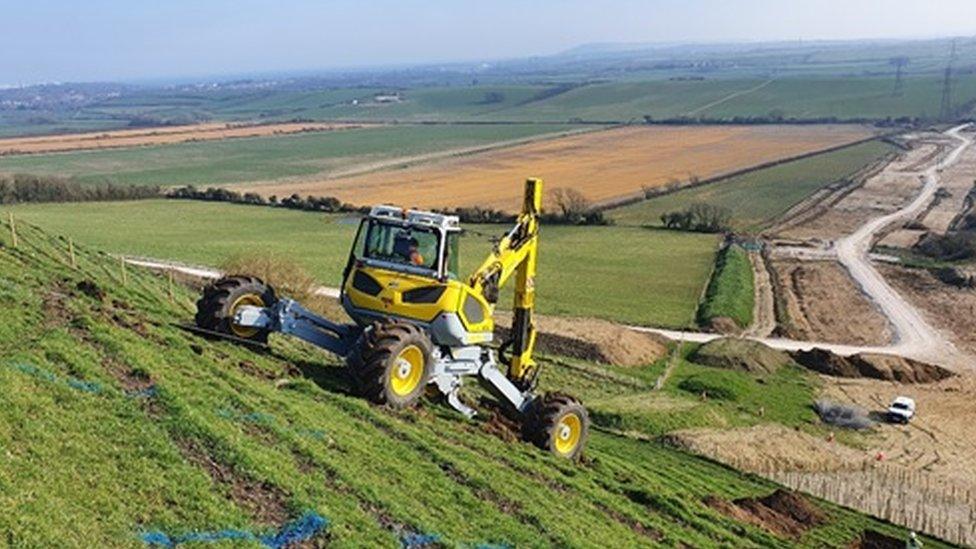
A specialist spider digger had to be brought in for work on Corton Hill due to the sharp incline
Paul Hamnett, senior project manager for National Grid, said: "This final pylon coming down marks a major milestone in a complex engineering project whose benefits the local community and visitors from around Britain can enjoy long into the future.
"It's been an exciting journey with a wealth of fascinating archaeological finds unearthed along the way, and we've achieved our aim of enhancing this beautiful landscape. We're delighted to have made it happen."
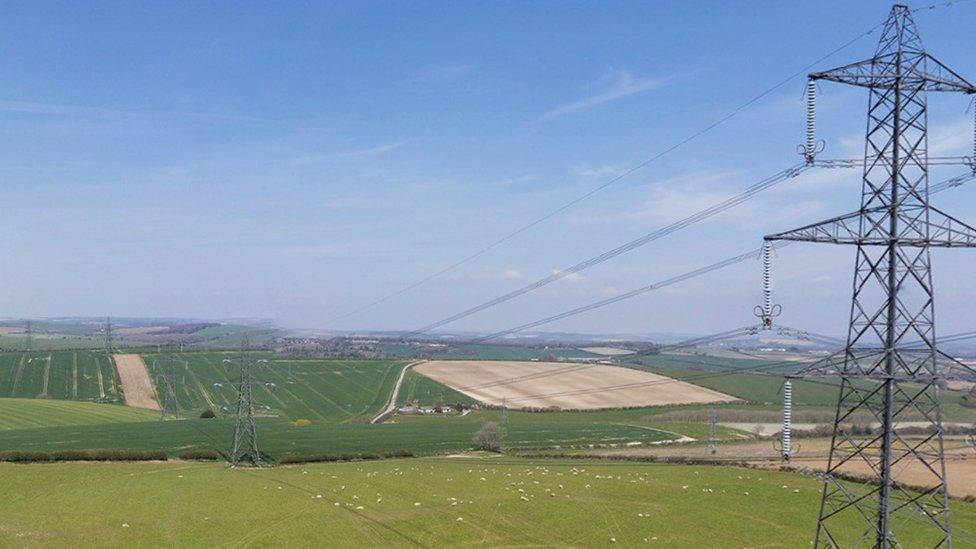
Overhead cables and pylons near the villages of Martinstown and Winterbourne Abbas have been pulled down
Excavations ahead of the work in 2021 led to archaeological discoveries dating back 6,000 years.
A Roman settlement was uncovered, as well as Neolithic and Bronze Age finds. The oldest artefacts were flint tools and pottery from about 4,000BC.
More than 25 researchers from Oxford Archaeology spent months carrying out investigations, focusing on six locations along the route west of Dorchester.
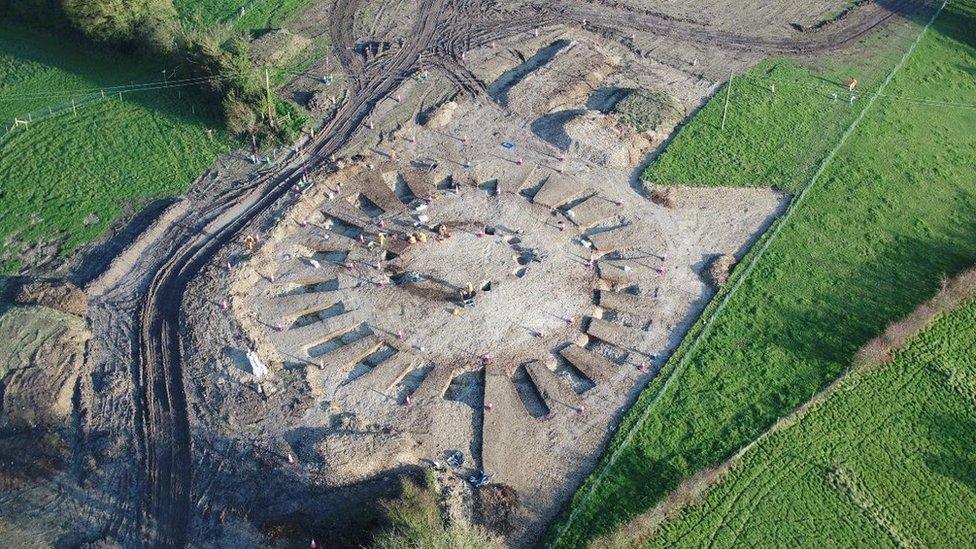
Catsbarrow was among a number of burial sites unearthed by archaeologists
The Dorset AONB stretches from Lyme Regis to Poole Harbour and inland as far as Blandford Forum.
Pylons are also coming down in other protected landscapes, including the North Wessex Downs AOND, Peak District National Park and Snowdonia National Park.

Follow BBC South on Facebook, external, Twitter, external, or Instagram, external. Send your story ideas to south.newsonline@bbc.co.uk, external.
- Published7 June 2022
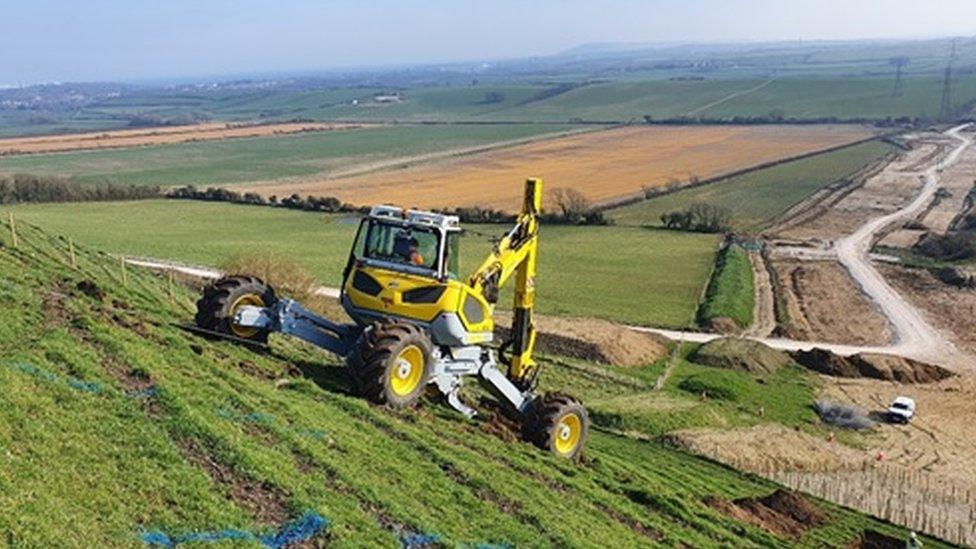
- Published11 June 2021
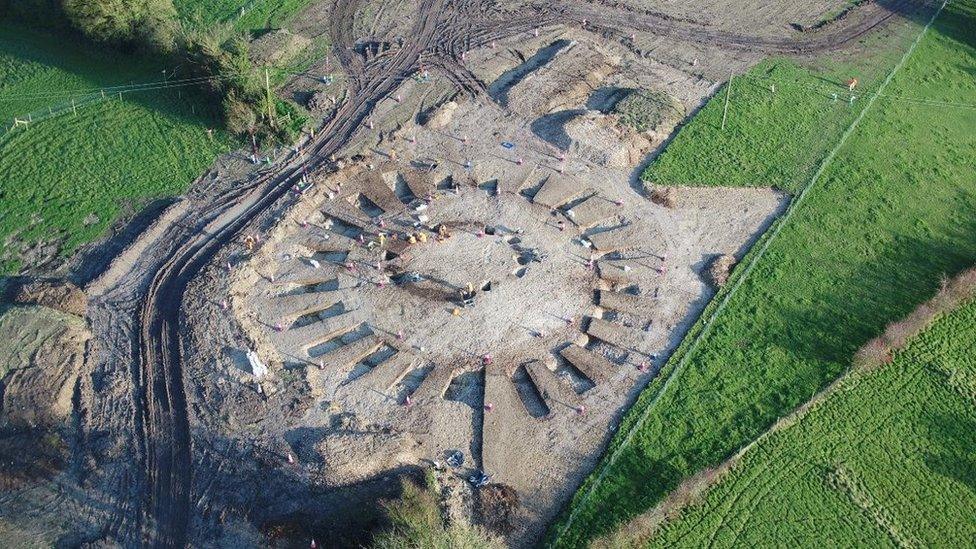
- Published2 July 2018
